DEARBORN — The local community is urged to participate in electing a new state representative for the 15th House District, after the seat was vacated by Mayor Abdullah Hammoud following his victory last November.
To fill the vacancy, Governor Whitmer called for a special primary election on Tuesday, March 1 and a general election on Tuesday, May 3. The winner will finish out Hammoud’s term. By now, most residents should have received absentee ballots for the election.
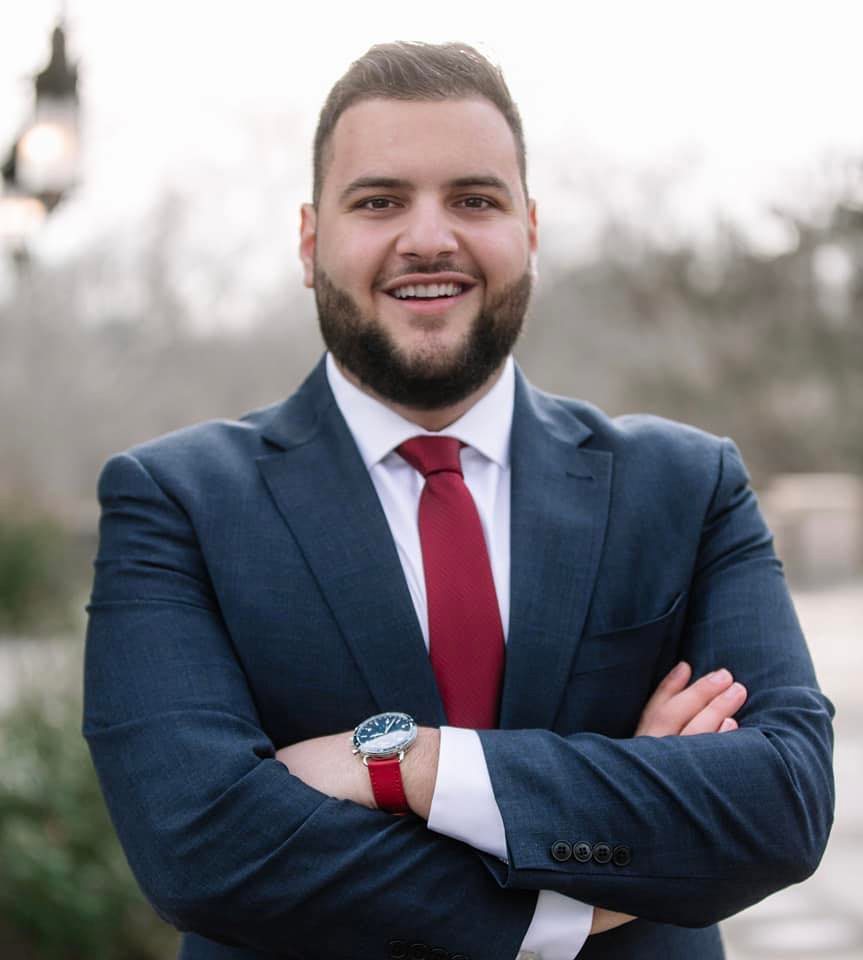
Alabas Farhat
The area that the 15th House District covers is now slated to fall under entirely new district maps, finalized by the bipartisan Michigan Independent Citizens Redistricting Commission (MICRC) in late December. The Commission finalized maps that were supposed to become law on Dec. 31, but its decisions now face a legal challenge, with more challenges expected in the future.
On the Democratic ticket for the special election are Alabas Farhat and local attorney Jeffrey Pepper. One Republican, Ginger Shearer, formerly known as Virginia Polk, is also in the race.
The special election is not to be confused with the upcoming August/November election cycle, which will decide who represents the new Commission-drawn Third District for two years, beginning next January.
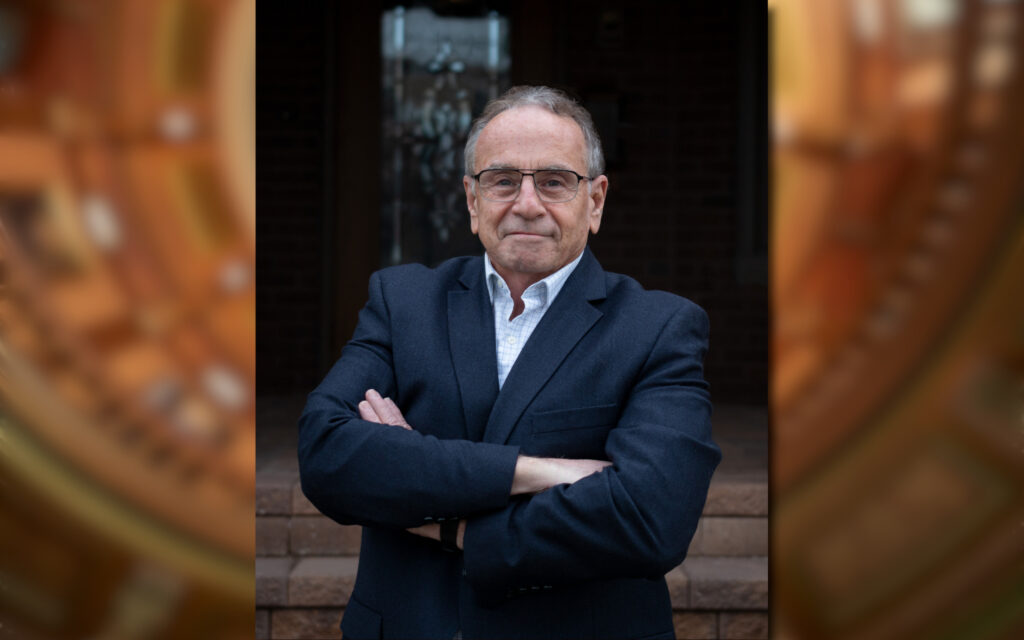
Jeff Pepper
The previous 15th House District covered all of Dearborn except for three eastern precincts.
Comparatively, the Commission’s Third District comes closest to that previous seat. Additionally, new neighboring districts that cover Arab American enclaves in that area have the potential to see multiple candidates from the local community running for House seats, though the new district maps do somewhat fragment the community and mix it with non-Arab American concentrated precincts.
The Commission’s final maps can be seen on the MICRC website at michigan.gov/micrc/
Farhat has expressed his interest in also running for that new seat in the August election.
“My intention is to be a representative for more than seven months,” he told The Arab American News this week. “We will run again in August.”
State representatives perform the important duty of coordinating local interests and priorities in the state’s legislature in Lansing. This includes securing funding for major infrastructural improvements, addressing staffing shortages in schools and other issues that affect residents in their districts.
“There is a lot of money in the state that we want to bring to the city,” Farhat added. “The state has over $20 billion to be allocated to be invested. This is what this term will decide, who can help direct that money to come to our district, to fix our potholes, to invest in our schools to take care of our infrastructure needs.”
Anyone who lives in the city, except those in precincts three, five and nine, can vote in next week’s election. Below are the sample ballot and the precinct map:
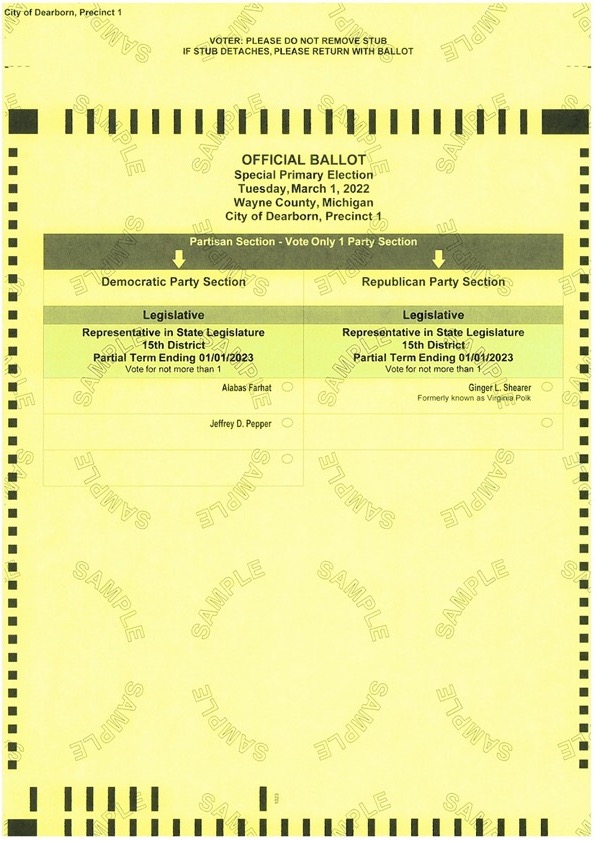
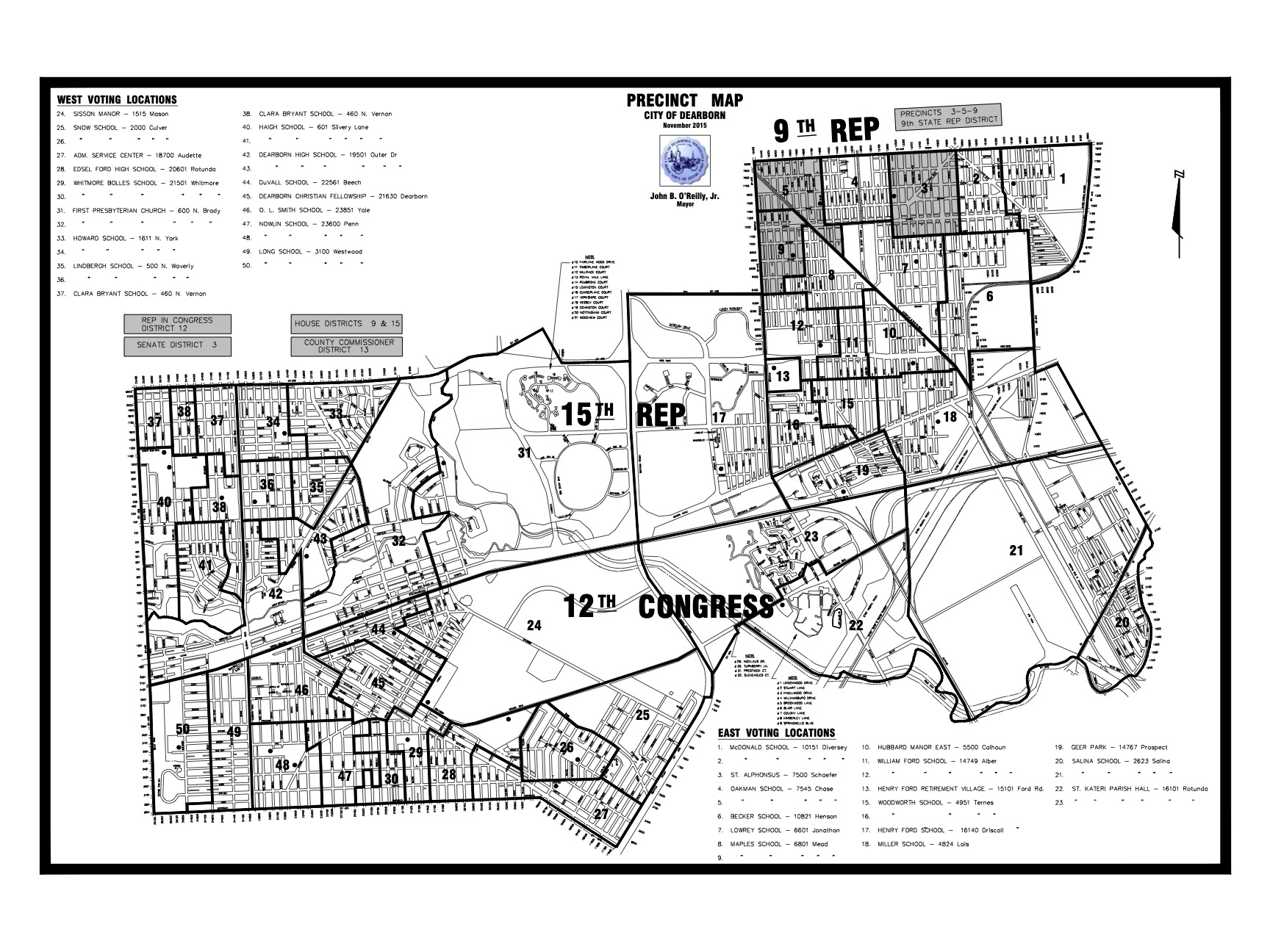


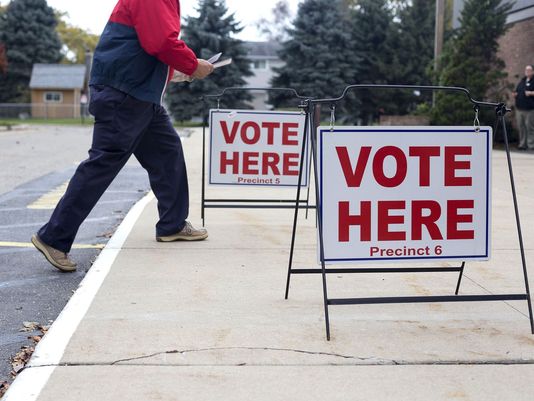



Leave a Reply